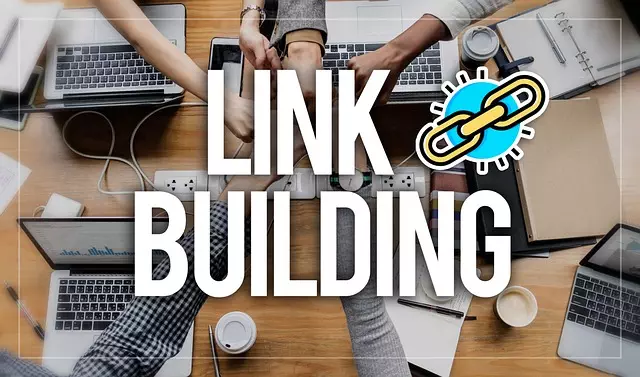Link building is a critical SEO strategy that enhances website authority and visibility by acquiring high-quality backlinks. It involves creating valuable content, fostering industry connections, and engaging audiences through diverse platforms. By strategically identifying relevant backlink opportunities, collaborating with influencers, and measuring key metrics, websites can naturally build authority and improve search engine rankings in a competitive digital landscape.
In the digital landscape, link building is a strategic art that propels websites to the top of search engine rankings. This comprehensive guide explores the intricacies of link building strategies, serving as a roadmap for online success. From understanding the core principles of SEO to harnessing the power of guest blogging and influencer partnerships, each section unveils valuable insights. Discover how creating engaging content and leveraging social media can attract natural links, ultimately enhancing your website’s authority and visibility in today’s competitive web environment.
Understanding Link Building: The Backbone of SEO

Link building is a strategic process that involves acquiring backlinks from other websites, with the primary goal of enhancing a site’s authority and visibility in search engine results pages (SERPs). It forms the backbone of Search Engine Optimization (SEO), as links act as digital votes of confidence, signaling to search engines that a website provides valuable content. The more quality links a site accumulates, the higher its ranking potential becomes for relevant keywords.
This strategy is about building meaningful connections and relationships with other web owners or influencers in your industry. By creating and sharing compelling content, engaging with your audience, and reaching out to relevant sites for collaboration or guest blogging opportunities, you can earn backlinks naturally and organically. Such links not only drive traffic but also contribute to a site’s overall SEO health, making it an indispensable component of any successful digital marketing strategy.
Why Links Matter for Website Authority

In the digital landscape, links are the backbone of any website’s authority and visibility. When other reputable websites link to yours, it signals to search engines that your content is valuable and trustworthy. This positive signal boosts your site’s ranking in search results, making it more visible to potential visitors. Link building is a strategic process aimed at acquiring these valuable backlinks, which not only enhance your website’s SEO but also establish its credibility and influence online.
Each link from a relevant and authoritative source contributes to the overall health of your website. It indicates to users that your site is a reliable source of information, encouraging them to explore further. This user engagement and increased time spent on your pages are significant factors that search engines consider when determining a website’s worthiness for higher rankings. Effective link building strategies ensure your website gains exposure, builds trust, and solidifies its position in the competitive online arena.
Types of Links: Good vs. Bad Influences

Link building is a vital strategy in SEO, but it’s crucial to differentiate between good and bad influences on your website’s ranking. Good links, often referred to as high-quality backlinks, are those from reputable and relevant sources. These include links from authoritative industry blogs, well-regarded news websites, or trusted government sites. They carry significant weight because they signal to search engines that your content is valuable, reliable, and worth referencing.
In contrast, bad links, or low-quality backlinks, come from unreliable or irrelevant sources. These can be from spammy websites, poorly maintained blogs, or pages with little to no authority. While these may seem easier to acquire, they can negatively impact your website’s ranking. Search engines view them as a sign of poor content quality or even manipulation, leading to penalties for your site. Therefore, it’s essential to focus on acquiring good links through effective link building strategies like creating valuable content, collaborating with industry influencers, and earning media coverage.
Identifying Relevant Backlink Opportunities

Identifying relevant backlink opportunities is a crucial step in successful link building strategies. It involves researching and understanding your target audience, industry trends, and competitors’ backlinks. Start by analyzing existing backlinks to your website to identify common anchor texts, referring domains, and page authorities. This provides insights into the types of links that work best for your site.
Utilize advanced search operators and tools like Google Search Console, Ahrefs, or SEMrush to discover potential backlink prospects. Look for sites that align with your niche, have high domain authority, and offer valuable content opportunities. Engaging with these websites through guest blogging, interviews, or collaborative projects can lead to natural and relevant backlinks, enhancing your website’s search engine visibility and credibility.
Creating Engaging Content for Natural Links

Creating engaging content is a cornerstone of successful link building strategies. When your website offers valuable, unique, and high-quality information that users find useful or interesting, it naturally attracts links from other sites. This can be achieved through in-depth articles that tackle complex topics, infographics that simplify data, or video content that tells compelling stories. The key is to produce something so compelling that people are willing to share it—and sharing often leads to natural backlinks.
Engaging content also means staying up-to-date with trends and news relevant to your industry. By being one of the first to cover a hot topic, you increase your chances of being linked to by other authoritative sources. Additionally, interactive elements like polls, quizzes, or user-generated content sections can enhance user engagement, encouraging them to spend more time on your site and potentially share their experiences with others. This organic interaction can lead to a steady stream of natural links over time.
Guest Blogging: A Powerful Link Acquisition Method

Guest blogging is a highly effective link-building strategy that involves contributing written content to other websites in your industry or niche. By offering valuable insights, research, or unique perspectives on relevant topics, you can attract the attention of influential bloggers and website owners. These industry peers are more likely to feature your content, providing an excellent opportunity for natural backlinking. This method allows you to reach a broader audience, gain exposure to new potential customers, and establish yourself as an expert in your field.
When guest blogging, ensure that the platforms you target align with your brand’s values and demographics. High-authority websites within your industry can significantly boost your website’s authority and search engine rankings. Craft compelling content that resonates with the audience of each host site to maximize engagement and the likelihood of gaining valuable backlinks.
Utilizing Social Media for Link Building Campaigns

In today’s digital era, social media platforms offer a powerful avenue for effective link building campaigns. By strategically leveraging popular channels like Twitter, LinkedIn, and Instagram, businesses can enhance their online visibility and drive traffic to their websites. Engaging with audiences through insightful content, engaging visuals, and interactive videos not only fosters brand awareness but also encourages users to share and link back to the source—the website in question. This organic approach capitalizes on the inherent social nature of online communities, making it an invaluable tactic for any comprehensive link building strategy.
When utilizing social media for link building, it’s crucial to understand your target audience and tailor content accordingly. Crafting compelling narratives, joining relevant groups and discussions, and collaborating with influencers within your niche can significantly boost your efforts. Sharing valuable resources, industry insights, or unique tools relevant to your audience’s interests not only attracts attention but also positions your website as a trusted authority in the field. Remember that building links through social media is about fostering genuine connections and providing value, ensuring that any acquired backlinks are of high quality and contribute to the overall health of your website’s SEO.
The Role of Influencer Partnerships in Link Generation

Influencer partnerships have emerged as a powerful tool in modern link building strategies. By collaborating with influencers who have established online credibility and a dedicated following, websites can gain exposure to new audiences. These partnerships often involve creating sponsored content, guest posts, or product reviews that naturally integrate links back to the brand’s website. This strategy leverages the influencer’s reach and trustworthiness to earn high-quality backlinks, which are a critical component of successful link building campaigns.
Additionally, influencer partnerships offer organic link generation opportunities through authentic endorsements and word-of-mouth marketing. When influencers share their positive experiences with a product or service, it can lead to increased brand awareness and natural links from relevant websites and blogs. This approach not only enhances the website’s authority but also fosters long-term relationships with influential figures in the industry, potentially opening doors for future collaborations and continued link building efforts.
Measuring and Analyzing Link Building Success

Measuring link building success is an essential step in understanding what strategies are working and which areas need improvement. It involves tracking key metrics that indicate the effectiveness of your link-building efforts. One critical metric to monitor is the number of backlinks acquired, as this directly correlates with search engine rankings. Additionally, analyzing the quality of these backlinks is vital; high-authority websites carrying relevant backlinks hold more value than numerous links from low-quality or unrelated sites.
Tools like Google Search Console and analytics platforms provide valuable insights into link performance. These tools offer data on referral traffic, which helps identify top-performing link sources. By examining anchor text usage, you can understand the context in which your website is being linked and ensure it aligns with your content strategy. Regularly evaluating these metrics allows for informed decision-making, enabling you to refine your link-building tactics and stay ahead in search engine optimization (SEO).



